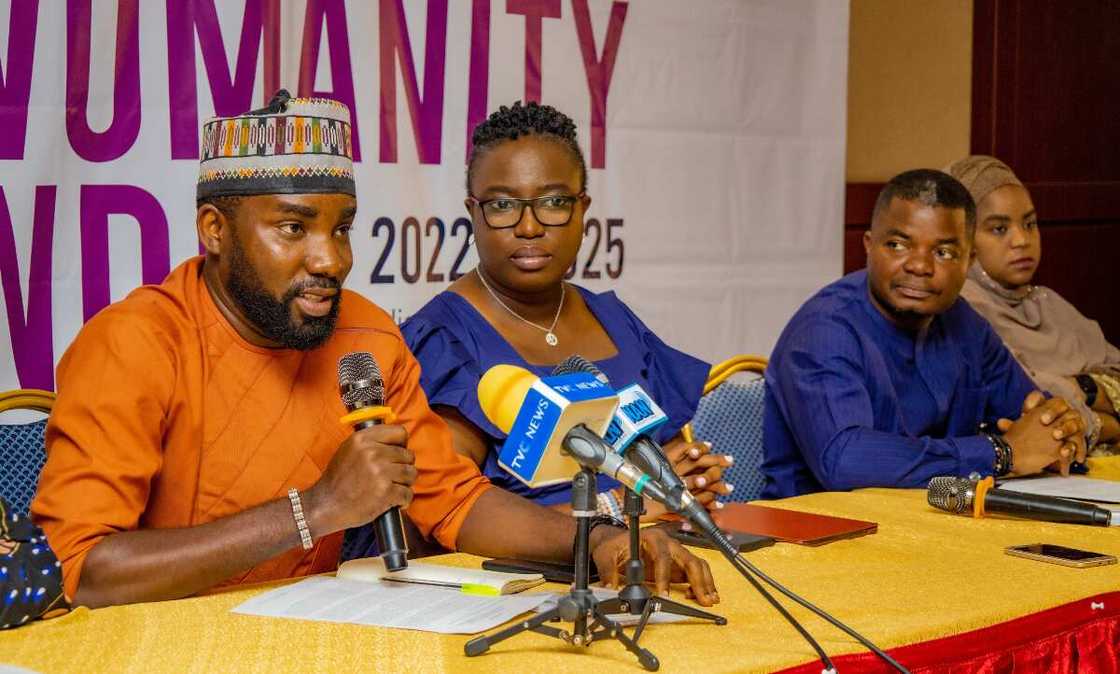Invictus Africa, BudgIT to Release Annual Rankings for Gender-Based Violence, NGF Gives Endorsement
- The advocacy for reforms in women-related issues has culminated in the introduction of the Womanity Index annual rankings
- The initiative is a collaborative effort engineered by Invictus Africa, BudgIT and supported by the Nigeria Governors Forum (NGF)
- Womanity Index is aimed at helping state actors measure their performance in combating gender-based violence, women's political participation, girl-child education and others
PAY ATTENTION: Сheck out news that is picked exactly for YOU ➡️ click on “Recommended for you” and enjoy!
FCT, Abuja - In a bid to curb gender-based violence and other ills affecting women and girls, Invictus Africa, a non-governmental organisation in collaboration with BudgIT, has inaugurated the Womanity Index.
The Womanity Index is an annual ranking generated from a data-driven report covering gender-based violence, girl-child education, women’s health, economic empowerment, and political representation.

Source: Twitter
Speaking at a press conference in Abuja on Wednesday, April 26, Bukky Shonibare, Invictus Africa’s executive director, said the initiative would help check and gauge the performance of subnational governments in tackling the ills targeted at women and girls.
She said:
PAY ATTENTION: Сheck out news that is picked exactly for YOU ➡️ find the “Recommended for you” block on the home page and enjoy!
“The Womanity Index is novel as it helps subnational governments, as primary duty bearers, know their performance in their efforts to prevent and respond to GBV in their states, the gaps and challenges that impede their performance, and the specific, actionable recommendations which, when implemented, will result in ensuring laws and policies guarantee GBV prevention, effective support systems, and allocation of adequate budget and spending to address gender-based violence.”
Speaking to Legit.ng on the development, Gabriel Okeowo, the country director of BudgIT, said the Womanity Index would help ease the responsibilities of the state government in data gathering in undertaking reforms on issues concerning women and girls.
NGF endorses Womanity Index project
He noted that the Nigeria Governors Forum (NGF) has first-hand knowledge of the initiative and has supported a collaborative effort to curb issues around women and girls.

Read also
Legit.ng Recognised as “Best Trust Initiative” Award Winner by WAN-IFRA 2023 Digital Media Awards
Okeowo's words:
"When we started this whole idea even before we did anything, we have gone to introduce this idea to the Nigerian Governors Forum as well as the Nigerian Governors Wives Forum.
"Both agencies accepted to partner with us with open arms and at the validation meeting the director-general for both agencies was there and today just at this concluded press conference you can see someone representing the Nigerian Governors Forum here."
He added that the Womanity Index would only be a reality with the support of the state government and their involvement from inception to finish.
Okeowo also said the collaboration with the NGF gives credibility to researchers, who would get a written endorsement from the governors of all states of the federation to help them gather data.
Similarly, the representative of the NGF, Folahan Johnson, told Legit.ng that the agency is operating as a resource partner in the Womanity Index project.
Johnson said the NGF would help foster moves to ensure the adoption of states and support of state institutions.
His words:
"What our secretariat is doing is provide first layer support for BudgIT and Invictus Africa to be able to have access to state actors that would be critical to the success of the research."
Ford Foundation is funding the Womanity Index project, and it is expected to cover and gather data from Nigeria, Ghana and Senegal.
How CAFOD, CWSI are using Nigerian laws to end gender-based violence
In another development, there is a growing call to end gender-based violence in communities across the federation.
Civil society groups like CAFOD and CWSI have taken the responsibility to combat such societal ill as gender-based violence.
Both civil society groups have resorted to sensitising women and men in remote suburbs to combat this problem.
Source: Legit.ng




